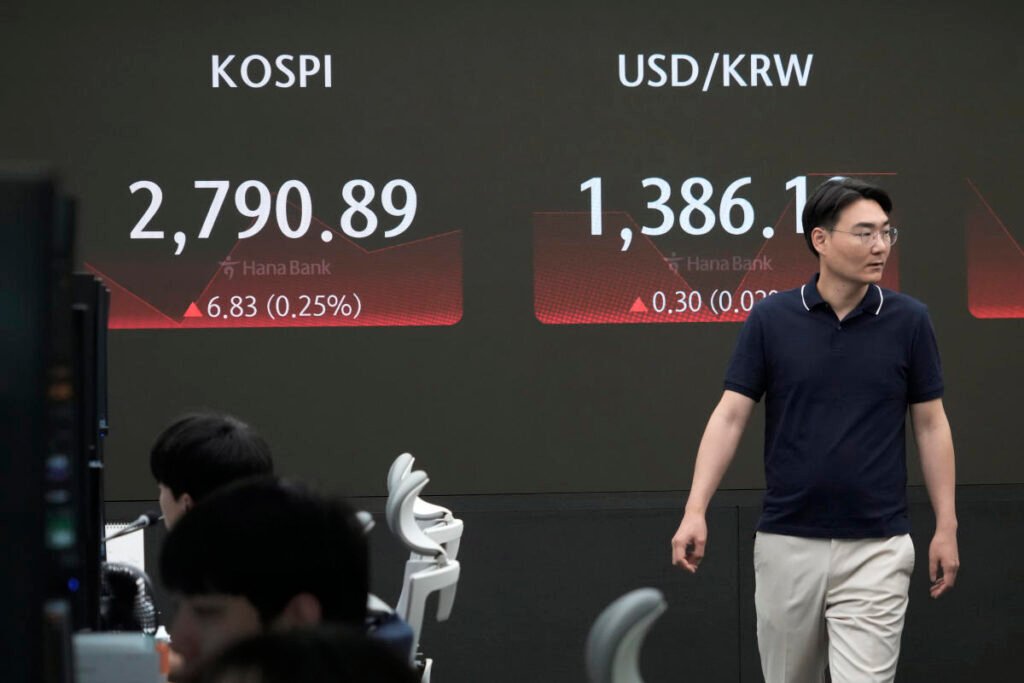TOKYO (AP) — Global stocks rose on Friday as traders looked ahead to a key report on inflation that could influence the U.S. Federal Reserve’s next interest rate moves.
France’s CAC 40 was down 0.4% at 7,503.63 at the open, while Germany’s DAX rose 0.6% to 18,312.62. Britain’s FTSE 100 rose 0.4% to 8,210.54. Futures for the Dow Jones Industrial Average were up nearly 0.1%, while the S&P 500 was up 0.3%.
In Asia, Japan’s Nikkei rose 0.6% to finish at 39,583.08. Australia’s S&P/ASX 200 added 0.1% to 7,767.50. South Korea’s KOSPI rose 0.5% to 2,797.82. Hong Kong’s Hang Seng Index was little changed, up less than 0.1% to 17,718.61, and the Shanghai Composite Index rose 0.7% to 2,967.40.
In Japan, the government said industrial production rose to a better-than-expected 2.8% in May, while the unemployment rate was unchanged from the previous month at 2.6%.
On Thursday, the S&P 500 rose 0.1%, the Nasdaq Composite Index added 0.3% and the Dow Jones Industrial Average rose 0.1%.
U.S. stock markets have been lackluster this week ahead of Friday’s release of the government’s next big inflation report, the personal consumption expenditures index (PCE), the Fed’s preferred inflation gauge.
In the report, economists expect inflation to ease modestly to 2.6% in May, following 2.7% in April, below the PCE peak of 7.1% in mid-2022. Other inflation measures, including the Consumer Price Index, have also eased significantly over the past two years.
The latest information on inflation could influence central banks’ decisions on when to start cutting interest rates, which are at their highest in more than two decades and have ripple effects around the world. Wall Street expects central banks to start cutting interest rates when they meet in September.
The U.S. economy expanded at a 1.4% annualized pace in January-March, according to the government’s latest update, a slight revision from a previous estimate of 1.3%. That would be the slowest quarterly growth rate since the spring of 2022.
A slowdown in consumer spending could help ease inflation further, but too much of a slowdown could deal a bigger blow to the economy. The Fed is trying to time its efforts to bring inflation back to its 2% target without slowing the economy enough to tip it into recession.
In energy trading, benchmark U.S. crude rose 81 cents to $82.55 a barrel, while the international standard Brent crude added 77 cents to $86.03 a barrel.
In the foreign exchange market, the U.S. dollar fell to 160.73 yen from 160.77 yen, and the euro rose to 1.0710 dollars from 1.0704 dollars.

